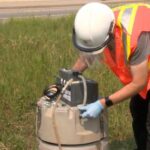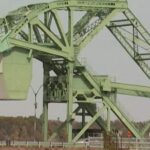In a significant shift that could reshape educational governance across the province, the Ontario government is preparing to expand its oversight capabilities of local school boards—a move that appears directly influenced by recent high-profile board takeovers.
Provincial education officials confirmed yesterday that the Ministry of Education is developing enhanced supervisory frameworks that would grant Queen’s Park broader authority to intervene in school board operations before situations reach crisis levels. This proactive approach comes after the province was forced to appoint supervisors to take control of both the Thames Valley District School Board and the Kawartha Pine Ridge District School Board within the past year.
“What we’ve witnessed with recent board takeovers has highlighted structural weaknesses in our current oversight model,” said Education Minister Stephen Lecce in an exclusive interview. “Rather than waiting until boards are in complete disarray, we’re creating mechanisms to address governance concerns at earlier stages.”
The Thames Valley intervention, which affected over 80,000 students across London and surrounding communities, followed months of dysfunction that saw trustees engaging in public disputes and failing to address serious operational concerns. At Kawartha Pine Ridge, similar governance breakdowns prompted provincial action.
Policy analysts from the CO24 Politics desk have learned that the proposed oversight expansion would establish a three-tier warning system before full supervisory control is implemented. This graduated approach would include mandatory governance training, appointment of special advisors, and implementation of operational improvement plans—all before the final step of complete provincial takeover.
School board associations have expressed mixed reactions. Ontario Public School Boards’ Association president Cathy Abraham acknowledged the need for accountability but cautioned against undermining local democratic control.
“We recognize there are instances where intervention may be necessary,” Abraham noted, “but any new framework must respect that trustees are democratically elected representatives accountable to their communities.”
The policy shift also appears influenced by similar oversight models in British Columbia and Alberta, where provincial education ministries have developed more nuanced intervention protocols that preserve local governance while addressing performance issues.
Financial implications remain a central concern for many education stakeholders. The Ontario Secondary School Teachers’ Federation has questioned whether expanded oversight might become a pretext for provincial control of board budgets during periods of fiscal constraint.
“The timing raises legitimate questions about whether this is truly about improving governance or controlling expenditures,” said Karen Littlewood, OSSTF president. “Educational excellence requires both good governance and proper funding.”
The ministry plans to release draft regulations for public consultation by early spring, with implementation targeted for the 2024-25 school year. Officials emphasized that the framework is being designed with input from experienced trustees, education experts, and governance specialists.
As Ontario navigates this delicate balance between local control and provincial oversight, the fundamental question remains: Can a more interventionist approach improve educational outcomes while respecting the principle of local democratic governance in our schools?

























